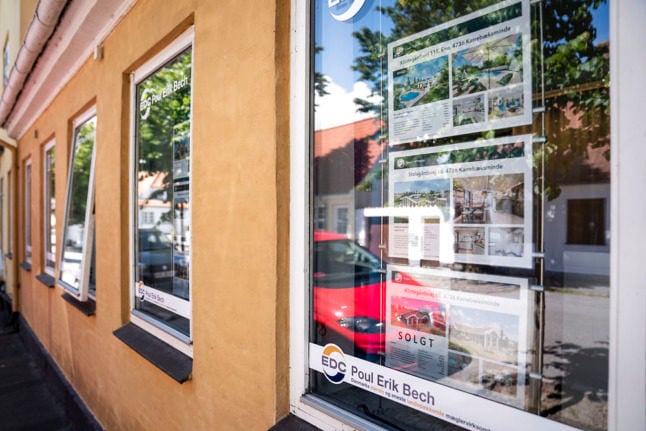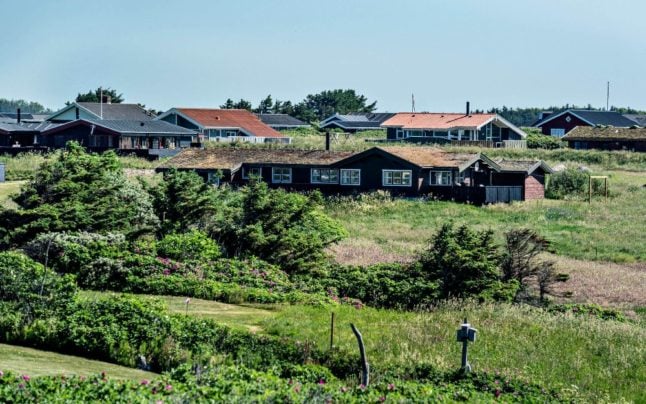With skyrocketing house prices in the last year and a half, closely linked to the Covid-19 pandemic, becoming a homeowner in Denmark hasn’t got any easier.
Foreign nationals looking to buy property can face additional challenges, including minimum residency requirements and banks asking for a higher down payment on mortgages.
We asked our readers to share their experiences. Thank you to all who took the time to get in touch.
One issue that was frequently mentioned was the higher down payment lenders ask for from foreign buyers.
“We knew as foreign buyers we had to put down 20 percent down payment in cash,” wrote Ellen, who bought a house in Aalborg with her partner in March this year. Ellen and her partner are both foreign nationals, with one holding an EU citizenship.
“The first question our real estate lawyer asked us was ‘how is your marriage?’ It is fine but this caught us very much by surprise,” she recounted.
Another reader, Paolo, reported “more down payment (sometimes up to 40 percent) and banks would request a proof that ‘we were going to stay in the country’.”
Not being a permanent resident counted against at least one reader when applying for mortgages.
“(Being refused a loan, despite provisional approval in the past) was a common thread with almost every bank we tried; they told us our personal economy was really great, but my lack of permanent residency was a risk. Of course this was never written down, but mentioned in phone calls,” wrote Drew Fremlev Fisher, who was turned down several times along with his Danish partner before eventually being accepted for a mortgage by the Lån og Spar bank.
Foreign nationals who have lived in Denmark for less than five years are required to apply for permission to buy real estate with the Ministry of Justice’s Department of Civil Affairs (Civilstyrelsen). This also applies to Danes who have lived abroad.
This affected the buying process for some of those who wrote in to us, although others described it as “additional paperwork” rather than an obstacle which would prevent buying.
READ ALSO: Danish government refuses to intervene over soaring house prices
“Getting the loan from the bank was difficult since we hadn’t lived in Denmark for five years minimum,” wrote Shweta, who purchased a house in Billund in March 2020.
“We had to go through multiple banks to get a bank loan with a good offer. We also had to get an approval from the government to buy property in Denmark. But it was handled by the real estate people and the approval arrived in a week or two,” Shweta recounted.
That approval was contingent on a condition that Shweta and her partner do not rent out their property.
“If we haven’t lived in Denmark for minimum of five years then we cannot rent out the property under any circumstances. Even if you have to move within the country, you will need to sell the property first,” she said.
Shweta told us that the mortgage taken out by and her partner has better terms than she might have expected in her home country, India.
“The total credit loan at 1 percent per annum was a great surprise and a home loan in India would be much more around 9 percent to 11 percent, I think,” she wrote.
Ellen mentioned another key difference compared to buying a home in the United States.
“In the US we have a real estate agent for both the buyer and the seller. Here in Denmark the real estate agent is only for the seller,” she wrote.
Another reader, Craig, also found that estate agents operate differently in Denmark.
“Estate agents work on a very different basis in Denmark compared to back home in South Africa where they charge a higher percentage than in Denmark but do not get a guaranteed monthly salary,” he wrote.
“The expectation of having to pay the agency fees after the agency contract has expired is also somewhat onerous, especially when the house has still not sold and the period is never-ending or you have to find a new agent and cannot self-sell,” Craig added.
“Holding an open house for only 30 minutes, with little or no warning is not what we were used to back home,” he also said.
In the later stages of the buying process, some were impressed by the efficiency of the handover once a sale had been agreed.
“It was incredibly quick to go through the purchase process once we had the money in place. About 2 weeks,” wrote Fiona Smith.
“We received an email from the sellers (the agent) saying ‘congratulations!’ before we’d actually paid the money but because we’d fulfilled all the criteria, the house was deemed to be ours,” she explained.
“We’re both British and in the UK pretty much anything could happen until you literally have the keys in your hand and contracts exchanged so that was a very pleasant surprise (and one we didn’t quite trust until we’d paid!),” Fiona said.
READ ALSO: How the cost of renting an apartment in Copenhagen compares to other cities in Denmark



 Please whitelist us to continue reading.
Please whitelist us to continue reading.
Member comments